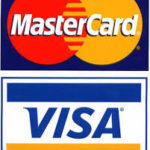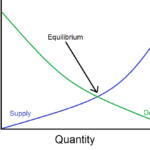In the finance, an option is a contract that gives the buyer the right, but not the obligation, to buy or sell an underlying asset at a specific price on or before a certain date. In more specific definition of it is formal contract between a seller and a buyer to give the right (but not the obligation) to buy-and-sell (or to buy-or-sell) a specific property or a fixed quantity of a commodity, currency, or security, at a fixed price (exercise price) on or up to a fixed date (expiration date). As mentioned before, it is a binding contract and has strictly defined terms and properties.

option.finance/about-option-finance
If the idea of option still not understood yet, it is perfectly acceptable. The idea behind option found in daily life. To make it clearer here is the example of purchasing a house as an analogy for an option. There is a house that you want to purchase, however, the cash money to buy the house is not available for another three months. The negotiation between you and the house owner takes place. The result of the negotiation is the owner gives the option to buy the house in three months with the price of $500,000. For this deal, you need to pay for $5000.
Next, consider two theoretical circumstances that might happen. Firstly, later on, it is discovered that the house is the birthplace of Martin Luther Jr. Due to this, the value of the house rises drastically to $4 million. The owner sold to you the option, he is obliged to sell the house for $500,000 to you. Thus, profit that you obtained is $3,45 million.
Secondly, you discover that the wall of the house is full of asbestos after thorough checking. In addition to that, the house is haunted and rats family has live comfortably for years in the house and built the fortress. Due to these, you consider the house worthless. Because the option is already purchased, you have no obligation to continue the purchase, and in this case, the $5000 price of the option is gone.
The example shows two essential points with regard to option. To begin with, when you buy the option you have the right to sell but no obligation. Waiting for the expiration date until it becomes worthless is fine. However, if this happens it means 100% losing the investment –money for paying the option-. Secondly, the option is a contract that deals with an underlying asset. Thus options are called derivatives, which means the value is derived from something else. In the example is represented by the underlying asset. Mostly, the underlying assets is a stock or an index.
There are two types of options, namely calls and puts.
An option call gives the holder the right to buy an asset at a certain price within a specific period of time. Calls are similar to having a long position on a stock. Buyers of calls hope that the stock will increase substantially before the option expires.
An option put gives the holder the right to sell an asset at a certain price within a specific period of time. Puts are very similar to having a short position on a stock. Buyers of puts hope that the price of the stock will fall before the option expires.
The participants of the options market are divided into four types and it depends on the position they take. The positions are buyers and sellers of calls and buyers and sellers of the put. As mentioned in the definition above, people who buy options are called holders and those who sell options are called writers. Furthermore, buyers are understood to have long positions, and sellers are supposed to have short positions.
The important distinction between buyers and sellers is call holders and put holders (buyers) are not compelled to buy or sell. They have the choice to exercise their rights. On the other hand, Call writers and put writers (sellers), however, are obliged to buy or sell. This means that a seller may be required to make good on a guarantee to purchase or sell.






